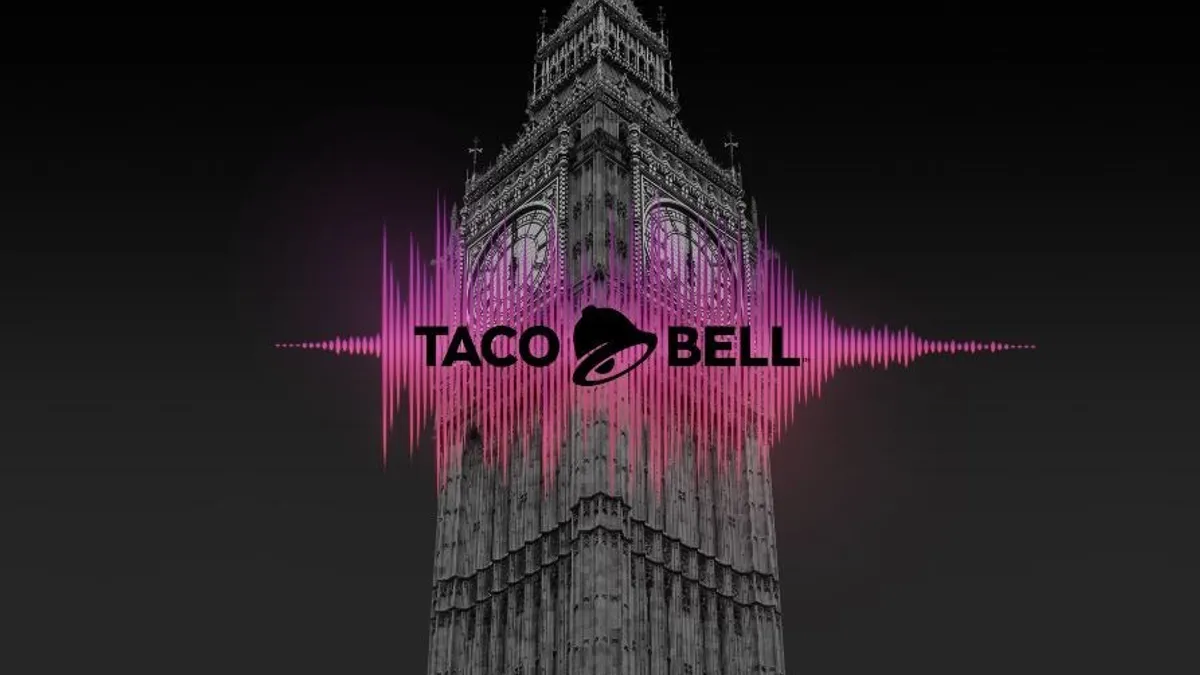Dive Brief:
- To celebrate the opening of four new restaurants in London, Taco Bell did a little brand hijacking of local landmark Big Ben, per a news release. The famous clock tower has been under construction and silent for more than a year, but the marketer surprised Londoners with the sound of its signature Westminster chimes, which were recreated using a digitized version of the Taco Bell bell toll.
- Taco Bell worked with an audio engineer to compose the chimes using Taco Bell's iconic bell ringing sound. The chimes were then broadcast through parametric speakers in the area near Big Ben on Nov. 19, raising the ears of passersby. The actual clock tower is expected to stay silent until 2021 due to repairs.
- Taco Bell's first new London location opens in the Hammersmith neighborhood on Nov. 23. All of the new restaurants will feature more modern designs, open-kitchen concepts, artwork from local artists, free Wi-Fi and charging outlets, the company said.
Dive Insight:
Taco Bell is looking to make a strong impression in London by "taking over" Big Ben, which is a frequent tourist destination and situated in an area of the city that receives heavy foot traffic. The location could help Taco Bell build brand awareness for its new restaurants and create a memorable experience that gets people — especially those eager for Big Ben's return — talking on social media.
It's another instance of a brand being disruptive to catch the attention of busy consumers, either by running a prank or hacking into cultural moments. These tactics have recently become a fixture of Burger King's marketing, with the brand acting out scenarios around net neutrality and the "pink tax" in ways that can frustrate or confuse consumers but also raise awareness about these issues. For Black Friday, Burger King is hijacking other brands' online banner ads and converting its cut of the revenue into Whopper vouchers.
The approach potentially dates longer back in Taco Bell's playbook, however. For an April Fool's prank in 1996, the chain claimed it had purchased the Liberty Bell and renamed it the Taco Liberty Bell, before revealing that it was a hoax and saying it would contribute to the upkeep of the historical landmark, according to the news release.
With the advent of digital and social media marketing, these efforts are helping fast-food brands to build loyalty with young consumers. While the category struggled with health-conscious millennials for years, Gen Z is showing a stronger interest. The generation is nearly 20% more likely to visit a fast-food restaurant compared to other generations, including millennials, according to a recent study by Foursquare and Carat.














